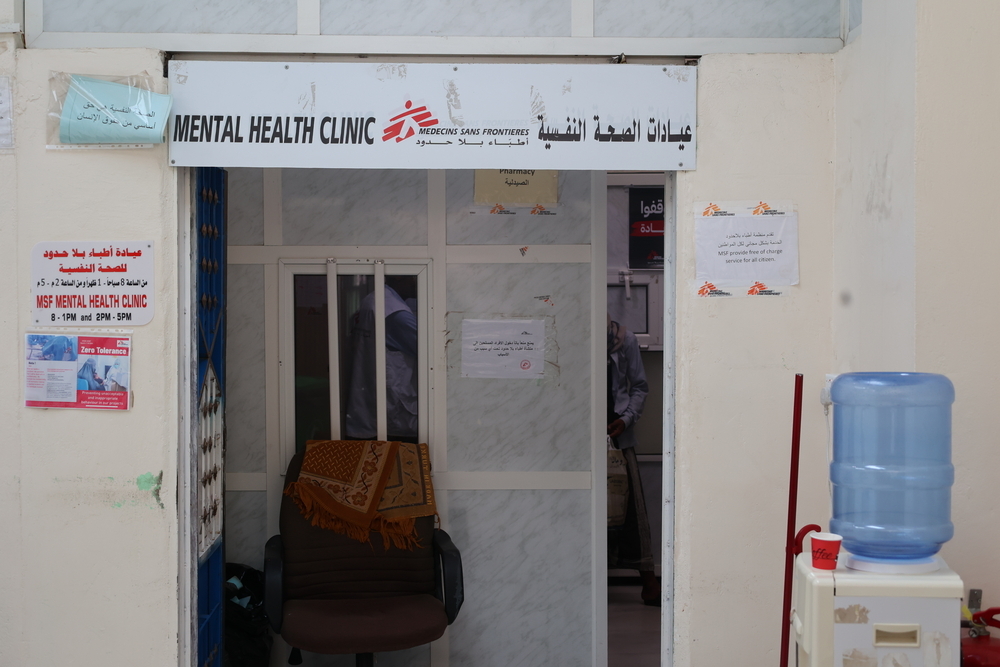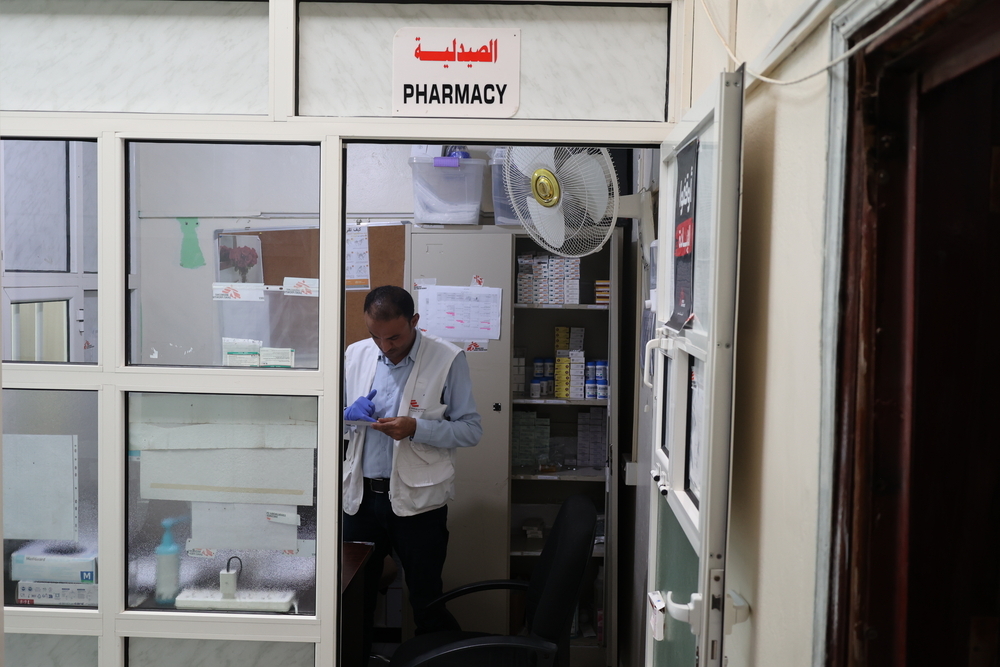More than a decade of conflict in Yemen has resulted in the destruction of vital infrastructure, displacement of families, loss of loved ones, and a severe deterioration of essential service, including health care. But beyond the physical destruction, the conflict has caused high levels of distress across communities, due to exposure to violence, displacement, and loss of income.
In Yemen, urgent medical and basic needs often overshadow the importance of mental health. While physical injuries and illnesses are visible and more immediately recognized, mental health issues tend to be under the surface and more easily ignored. Stigma and a lack of understanding of mental health issues and the care that is available to address them contribute to the significant barriers people face accessing mental health services. On top of this, the few mental health services that are available are strained by the ongoing conflict and fragile health care infrastructure.
Silent battles and fighting misconceptions
Stigmatization of people with mental health issues plays a major role in preventing open discussions about mental well-being. Many individuals who suffer from mental health challenges feel ashamed or fear being judged by their communities, leading them to suffer in silence. The lack of awareness and education about mental health contributes to persistent misconceptions.
Yet the country’s health care system which is already strained by years of war is struggling to meet people’s needs. The situation has been worsened by recent funding cuts, which have drastically reduced the availability of essential mental health services. Raising awareness, promoting culturally sensitive education, and integrating mental health and psychosocial care into primary health care services are essential steps toward improving emotional well-being in Yemen.

A ray of Hope – MSF mental health clinic
In Hajjah and Abs, Doctors Without Borders/Médecins Sans Frontières (MSF) in collaboration with the Ministry of Health (MoH) at Al Gomhouri Hospital (AGH) and Abs General Hospital is providing critical support offering individual psychological support, psychiatric care, counselling and interpersonal psychotherapy sessions for women diagnosed with depression. In Hajjah, MSF is also providing group sessions for those with severe mental health conditions at a rehabilitation centre.

From January until August 2025, MSF teams have admitted 260 new patients to Hajjah and 759 new patients to Abs. Sixty percent of the newly admitted patients had severe mental disorders in Hajjah and 22 percent in Abs. Over From 2022 to 2024, MSF’s mental health teams in Hajjah and Abs have provided a more than 27,000 individual and family mental health consultations and above 11,500 group sessions.
Mental health and psychosocial services in Yemen remain critically limited. For many individuals in need of care, accessing the nearest mental health services requires long journeys, placing a burden on both patients and their caregivers. Transportation challenges combined with the high cost of these services make it even more difficult for people to access them.
The need for psychological support remains acute. Despite these efforts, the scale of the crisis far outpaces the resources available, leaving many individuals in urgent need of help. MSF calls on donors and humanitarian actors to invest in mental health in Yemen. Early interventions in the community and at primary health care facilities can prevent many mental health issues from escalating. Mental health care also allows people to live a more functional and productive life, enhances family well-being, and reduces long-term health care costs.
Breaking Stigma
The lack of access to resources and support significantly impairs individuals’ ability to cope with mental health challenges, particularly in the early stages. MSF teams are sensitizing the patients and families through psychoeducation and awareness sessions for individuals and groups at the hospital to break the stigma around accessing mental health care.
Amid ongoing violence, food insecurity, and economic instability, the mental health and psychosocial support needs of the people in Yemen will likely worsen without an adequate response. Psychological distress resulting from conflict and displacement is not only widespread but increasingly chronic for many individuals. This reality underscores the urgent need for a sustained and well-coordinated mental health response—one that can adapt to evolving challenges and deliver comprehensive, long-term care to those most affected.












